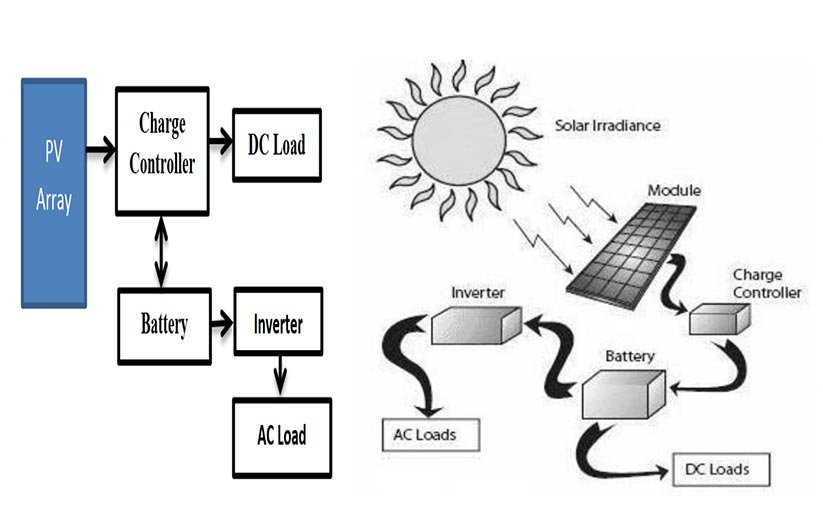Abstract: Off-grid photovoltaic (PV) solar systems represent a promising solution for decentralized energy generation, particularly in areas where access to the traditional grid is limited or non-existent. This abstract delves into the key aspects of off-grid PV solar systems, encompassing their components, functioning, advantages, challenges, and potential applications. Off-grid PV solar systems comprise solar panels, charge controllers, batteries, and inverters, all working in tandem to capture solar energy, store it efficiently, and convert it into usable electricity. The solar panels harness sunlight and convert it into direct current (DC), which is then regulated and stored in batteries through charge controllers. Inverters convert the stored DC electricity into alternating current (AC), enabling the powering of appliances and devices. The advantages of off-grid PV solar systems are manifold. They offer energy independence, enabling users to generate electricity autonomously, thereby mitigating reliance on centralized power grids and reducing utility bills. Additionally, off-grid PV solar systems are environmentally friendly, producing clean energy without emitting greenhouse gases or pollutants. They are also versatile and can be deployed in remote locations, providing electricity to off-grid communities, rural areas, and disaster-stricken regions.
Off-grid photovoltaic (PV) solar systems

20
Apr
